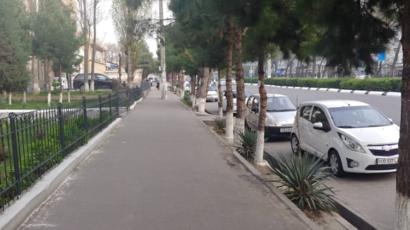The Senate at its November 1 meeting passed bill on more lenient penalties for some traffic violations, as well as the introduction of an administrative warning as a separate measure of influence.
The Defense and Security Committee chairman Kutbiddin Burkhanov, stated that the current administrative measures are not yet yielding the expected results. In most cases, the bodies considering administrative cases apply fines or administrative arrest.
“In many countries, in addition to fines, there are verbal warning and warning. While, if an individual commits a minor administrative offense for the first time, instead of a fine, they shall be explained the social consequences of their actions and shall be given a warning. This practice shows high effectiveness in preventing repeated violations,” he said.
Furthermore, according to him, there is a need to improve the system for preventing administrative offenses, to define a list of violations recorded by automated photo and video recording devices, and to revise the time limits for applying penalties for violations recorded by such means.
The senator recalled that in March-April, drivers expressed dissatisfaction with the fact that notices of violations committed back in 2024 were sent with a delay of almost 11 months due to server failures. The current Code of Administrative Responsibility (Article 36) states that an administrative penalty may be applied no later than one year from the date of the offense.
The bill has proposed a new type of administrative measure – an official warning, which can be applied to individuals who have committed minor traffic violations for the first time. This measure replaces a fine, but cannot be applied more than once a year to the same person. The administrative warning applies to the following offenses (the list was originally significantly broader):
- Parts 1 and 2 of Article 125 of the Code of Administrative Offenses – failure to wear a seat belt, driving vehicles that are not registered or have not undergone mandatory technical inspection, or have malfunctions;
- Articles 128-1, 128-2, 128-6, 135-1 – using a phone or monitor while driving, violating parking or stopping rules, violations related to mandatory insurance, etc.;
- Parts 1 and 2 of Article 138 – pedestrians disregarding traffic signals, crossing the roadway in unauthorized places, using a phone, etc., and individuals being on the roadway to provide various services to drivers, grazing livestock in the road right-of-way.
The bill has proposed to supplement the Administrative Offenses Code with an Article 17-1, which clearly defines violations of rules recorded by cameras:
- Parts 1, 5 and 6 of Article 125 of the Code of Administrative Offenses – failure to wear a seat belt, driving a vehicle without a license plate, driving a vehicle with a license plate that does not belong to it;
- Article 128 – driving vehicles on sidewalks, bicycle paths, green areas, disregarding traffic signs;
- Article 128-1 – using a phone while driving.
However, failure to comply with road markings is not recorded by cameras.
The proposals stipulate that if a traffic violation is recorded by an automatic camera, the administrative penalty must be applied no later than one month from the date of the offense. If the decision is appealed, no later than one year. Violations of these deadlines make the application of the fine null.
The bill has been passed by the senators and is now on the table of the president.
It should be noted that the bill was drafted on a directive of President Shavkat Mirziyoyev.














